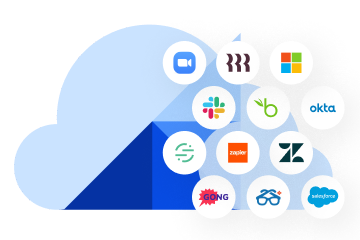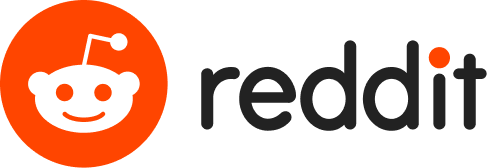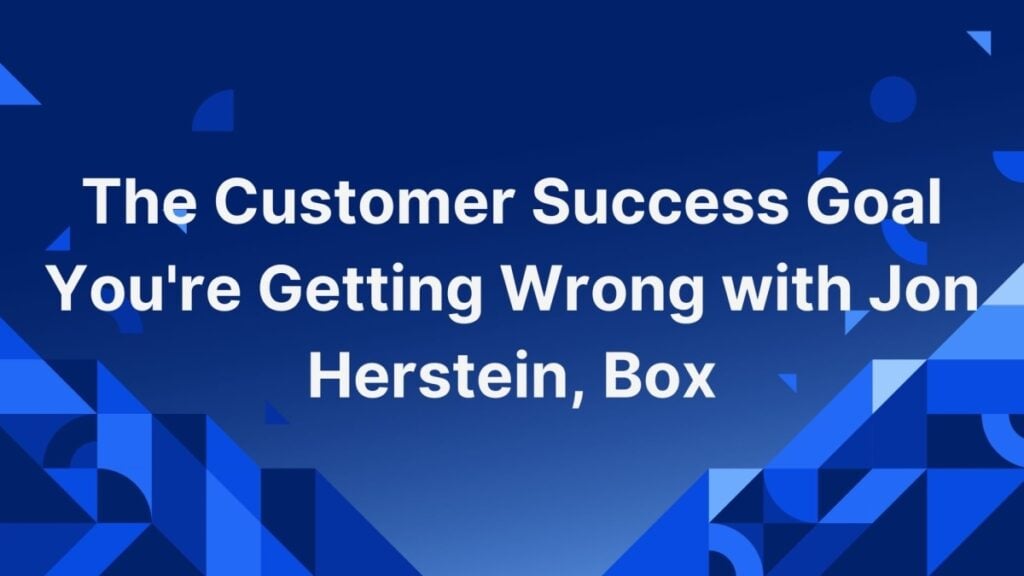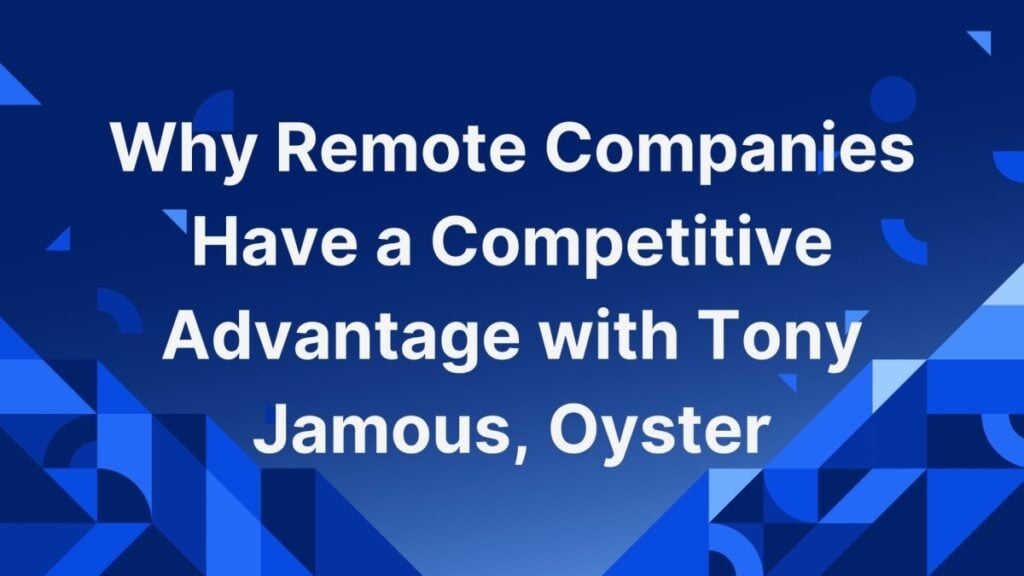-
 Resource Center
Resource Center
Discover enablement best practices and more in our resource center.
-
 Blog
Blog
Read the latest on enablement, learning and training trends.
-
 Podcast
Podcast
LEARN from the top leaders in SaaS.
-
 Videos
Videos
Watch videos and gain actionable insights from leading experts.
How to Develop Employee Benefits with Patty Kim, Head of People at Vestwell
People truly are a business’s most important asset.
With the right skill development and employee wellness program, a company’s talent increases revenue and pushes the organization to reach its goals.
“We looked at all of the costs and what employees wanted. Sometimes what they tell you what they want versus what they actually want are two different things. And we didn't want to define what wellbeing meant,” says Patty Kim, VP of People at Vestwell.
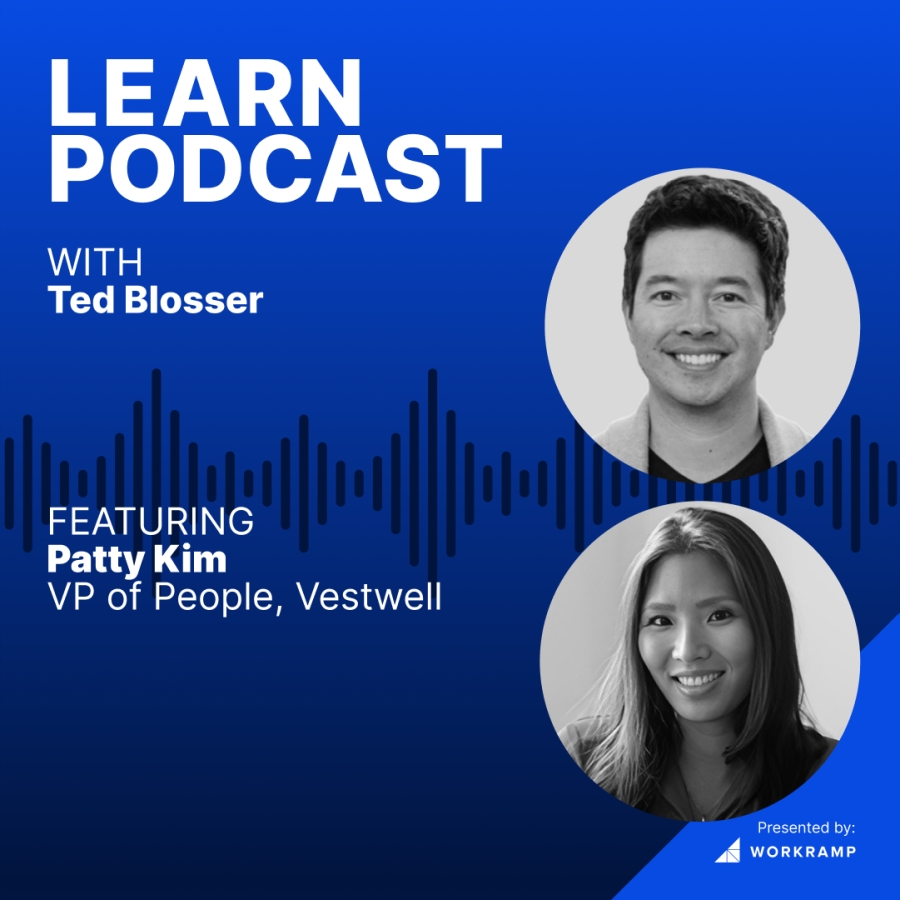
In this episode of LEARN, Patty discusses with Ted how people managers have a valuable seat at the table to set the performance standard at a company. You’ll also hear what it takes to create the ideal benefits package to attract and keep top-tier industry talent.
During the conversation, you’ll hear how to:
- Craft a benefits package that balances what your business can afford with what employees want
- Develop a culture of high performers to drive revenue
- Invest in your people’s development and skills
Listen on your favorite podcast app to learn how to become an even more effective people manager who drives noticeable value to your company.
Timestamps
[04:48] The future of the benefits market
[06:15] Strategizing benefits plans
[08:20] Understanding the ROI of benefits plans
[10:18] Adopting RTO initiatives
[17:52] Gamifying learning programs
[19:46] Investing in employee development
[23:37] LEARN Rapid-fire round
Resources
Podcast Recommendation:
Transcript
Patty: Empower managers to make really tough people decisions.
The number one thing that top performers will be disengaged by is low performance. If you tolerate low performance or bad behavior, Those things are combined. There's a code of conduct there's a way that we treat each other, but do not enable your managers to not tolerate. Bad behavior and bad performance and have the conversation quickly and move on because it sends the right message to, the rest of your employees, but it also sends the message to any employee that you're exiting that you want to support them through their next transition.
Ted: Hi, I'm Ted Blosser, CEO and co-founder of WorkRamp, where we're redefining the corporate learning space with the world's first all-in-one learning cloud for employee and customer learning. Welcome to the Learn Podcast, where we learn from the biggest leaders in SaaS and hear what makes them successful. Hope you enjoy the show.
Hey, what's up, everybody. Welcome back to the LEARN podcast. We have a special guest for you. Today we have Patty Kim from Vestwell. Patty, thanks so much for joining us.
Patty: Thank you for having me, Ted. I'm thrilled to be here.
Ted: Patty, let's start off with an elevator pitch, both on yourself and also what Vestwell does.
Patty: Yeah, absolutely. Well, I cut my teeth in recruiting over 10 years ago at a recruitment agency called 24/7 and I parlayed that into an in-house role at a company called Densu Aegis Network, where I really learned the importance of recruitment and HR to the bottom line, the impact it has to business outcomes, the importance of people and engagement and performance.
And when I was at Dentsu, I realized that I really wanted to Get a bit more street cred in the startup world and work for a SaaS company. So I moved over to Conductor, where at the time, they had just been acquired by WeWork. And my mandate for Conductor was to grow the business as much as needed.
And we went from roughly like 167 people to 300 people in a year. And we opened up new markets. And it was just hockey stick level growth that you expect to see from startup organizations. as we were building up different businesses and, setting up shop in all parts of the world, we wanted to go public in 2019.
And if you saw any of those highlights or any of the media, you know, they failed at IPOing that first time around. so during that time, anytime a company is ready to IPO or go through any kind of huge, exit or whatnot, there's a lot of diligence. there's a quiet period.
you know, you pull back on hiring, all of those things. I was part of the core team that was part of the divestiture. So we wanted to divest from WeWork right as they were going public. And I lovingly call that my accelerated MBA in all things HR. So not only did we have to buy back our company, we had to set up benefits, payroll, figure out how to set up our own entity in, four different locations globally. there was just so much I really learned the importance of a really strong foundation and that HR is really internal marketing and internal communications, and you have to bring your employees along through that journey.
And by the time I was ready to sort of move on because I got burnt out. so I got a phone call from Vestwell from one of our, portfolio companies. The recruiter reached out to me and she was like, Oh, you know, I know this, series B. I was like, absolutely not.
I'm done with startups. No, thank you, but then she just insisted you should meet with the CEO and the CFO as I dug into it, as any good HR person does, I was like, Oh, they're building a 401k platform. And I had just gone through testing. With 401k, it is a nightmare.
so if they're going to, revolutionize the way we manage 401k plans for, small businesses and the end user, I want to know how it looks. So I actually went on a sales call with them as I went through it, I was like, this is pretty cool. So I got a little bit bought into it.
Vestwell is now a FinTech company that has built a digital record-keeping system that makes it really easy for the end user to save their next best dollar. where it really counts, so whether it's in retirement, whether it's in health, education, so on and so forth.
And so we really wanted to, create a record-keeping platform that was not only transparent and portable. But made it so that the average American really understood how to build wealth. And 70 percent of Americans only build wealth through some type of company-sponsored program. And now, with the passing of the most recent secure choice law, there are a lot of state mandates around 529s and ABLES and things that support disability programs or college education and savings programs. And so financial well-being is really near and dear to my heart, and I met Aaron. I met Dave, and I was like, all right, let's go ahead.
Ted: That's a great background. You're in a really interesting position where you're the head of people at a company that's at the forefront of benefits and really leading the charge. give us your perspective on what do you think about the state of the benefits market and where you think it should go over the next three to five years?
Patty: Yeah, I think, where benefits are headed is towards well-being more holistically you know, employers really need to build out benefits programs that support every stage of life. So one thing that we experienced with Vestwell is when I joined the company, at that time, they just closed their series B.
It was roughly around 50 people. Today we're at 320. during that time, we really experienced a total shift in our employee population. So I think where benefits needs to go is being more well-rounded and you have to focus on a few elements of benefits. mental health has been a really big issue at the forefront.
I would say reproductive benefits. And of course, I would be remiss without mentioning financial well-being since we know that 70 percent of Americans really only have some type of savings or are able to build wealth through those types of programs; it's an incumbent upon us as employers to really support those programs for our employees.
Ted: A question I get that's really common. Especially start circles. So, for example, WorkRamp went through a Y Combinator. We have an internal forum, and I always see these questions about when should benefits be offered around different things within the stage of the company I'm at. Do you have a perspective on whether you would reserve some benefits for certain stages? Do you have a perspective on how you do the analysis with your CFO
Maybe give the audience some insight into how you make those decisions. Cause you kind of just went through that, and you probably have to be on the forefront, I'm assuming, give us your take on that.
Patty: Tactically, benefits are really expensive, And so if you back into the per cost per person and, whoever's on your coverage, so aside from the employee, their dependents, who's actually taking your benefits, my recommendation and the way we backed into our benefits program had to do with one,
what is the cost per head? What are the age groups, where do they live, et cetera, and then trying to map out and forecast what are potential life events that we need to provide benefits for. And, you look at what does our growth look like?
So how much headcount are we adding? once you evaluate all of those components, then you can back into and recognize, your buying power. What is your buying power? sometimes it makes sense to leverage a PEO. And that was what we were doing.
When we were around 50 to 75 people, and then we were looking at cost per head and the benefits that we were able to, access for that and realize we could do way better. And so we looked at what we were paying for and I made a commitment with my CF. I was like, I want to make sure that
We have as good, if not better, and that the cost that I have today is the spend that I can spend. we just decided forever to be on PEO that this is the cost I can have once you determine that with your CFO, like, what is your per head costs that you're comfortable with, then you can go out to market.
And so, I've worked with a number of benefits brokers throughout my career, and you have to find the one that is not only. Going to have your best interests at heart, but also be very, dialed into your employee's sentiments, what they need, what they're looking for, the human element is really important.
And what you decide to do with those benefits.
Ted: I actually want to ask you, since you just brought it up, what do you feel like had the best ROI either culturally or from an employee sentiment perspective, of all the benefits programs you were offering?
Maybe, that's just your 401k because of Vestwell, but I'm curious, did you have something that you'd like to share that had a great ROI for you?
Patty: We looked at, again, all of the costs, and then we looked at what employees wanted. And sometimes what they tell you they want versus what they actually want are two different things. Thirty percent of the company really cares about reproductive health and like, there's a huge contingency that really wants a gym reimbursement.
You have your medical, your dental vision, whatever your long-term benefits, etc. Aside from those things, you have to have a great 401k plan. We didn't want to define the well-being for the company. I didn't want to say, Hey, Ted, well-being means X, Y, and Z at Vestwell, and therefore that's what it should mean for you.
So what we did is I found cost savings. So again, I used a great broker and asked them, I was like, I want you to get the best deal for me. These are the requirements. And we shopped around. I made the carriers really want my business. And then whatever I had in savings, we now give that as an annual well-being budget.
I want to make sure that this is my per-headcount cost. I was just like, but I need this part. Can I have this part? And so we give an annual well-being budget that renews every year, and employees can use it for whatever they want.
Ted: I love that. I don't hear that enough where. As executive members, we might want to dictate what the well-being is. I love your approach that, hey, it's a well-being budget. You choose for yourself on what well-being means for you. Let me go into an adjacent topic.
So in the news, as we're recording this, you have meta. Who, hit the headlines just this week where they're saying, Hey, they will even terminate employees if they don't return to the office at least three days a week. So it's very controversial for that.
Basic workforce in general. What is your take on RTO or return to office as it stands today? And also where do you think it should head moving forward?
Patty: I think like anything, return to office is a behavior change, and I think that's what most people are scared of, you have to change your day-to-day routines. You have to change the way you think and the way you interact. I will say the 1st time I went into the office after COVID and had to engage live.
It was really scary. I was just like, am I making too much eye contact? Am I not? But I do believe that return to office is really critical for the success of the business. There is an interpersonal dynamic and the nuances of being live with someone engaging with them and the way we communicate shows up in so many different ways, and there's so much that's lost over Zoom or any kind of video interaction over the phone, over Slack.
In terms of what we see as far as competencies that we need employees to develop. It's those nuances; it's how I read body language, how do I look, how do I deal with, objections, how do I influence. Those interpersonal relationships and building them in person is so critical to a business it's hard to assign a specific, ROI to it.
I think we're still in the testing phase that this is going to work, but I also think that employees have spoken; they don't want to go back full-time. It's a balance of what is appropriate so that we build these new norms around what it means to be in the office where you're dialed in and making sure employees are equipped to do so mentally, emotionally and physically, but also ensure that they also have the opportunity to continue working from home as needed.
We were never full-time on-site. We were Series A startup in New York City. We had to be competitive. So, we knew that working from home was very attractive. It still is, of course. So we were always in office Monday through Thursday and Friday.
Ted: What is your day to work from home?
Patty: Right now, we're moving towards a more balanced approach. So we went a little bit. haywire in that we leveraged COVID and the opportunity to hire across, different states to find really strong talent,
We had different markets that we could pull from so we went fully remote and then, just recently we, implemented return to office for two times a week and we provided guidance to employees and saying, these are the two best days. These are days when we typically, based on our data we have client meetings.
Or when we have town halls or events or things that will actually enable that interconnectivity and that interpersonal dynamics,
Ted: Hey everyone, we're in the middle of the episode with Patty Kim, the head of people at Vestwell. She's talking all about how important benefits are for her people, the remote work environment as well.
If you're looking to upskill your people, just like Patty is doing, you got to check out the work ramp platform on work ramp. You have the ability to go on board, train and develop your employees across a multitude of skill sets. If you want to learn more, visit us at work ramp. com and check out our learning cloud technology.
Now back to the episode.
I think back to that meta-discussion; I think why it's causing a lot of drama, at least in the news, is that there's a heavy-handed approach to it. for example, it will show up on your performance reviews, words of termination bundled with that announcement. what tips would you give to people leaders who say, all right, I want to set this expectation, but for you to do this, like almost like you're threading the needle on this cultural move.
Do you, for example, suggest more of a carrot approach, stick approach? What's your suggestion? If you're trying to make that transition, which is, new for, the business.
Patty: I would say it's a bit of both. There's definitely a finesse in messaging, but for me, and I think for Vestwell, working remotely is a privilege. At any point as an organization, if we decide that there is a requirement, or there's, a responsibility that. an employee must meet, you know, that is something we'll discuss.
And if we disagree, then we part ways. And I think that's okay. Because things change, roles change, responsibilities change. The approaches that we take for return-to-office is it's a mandate.We want people in the office two times a week. It's also based on level and role.
So if your client facing, or if you're in a leadership position that has a certain PNL associated with it, and there's a need for you to be on-site, those are managed with a heavier hand for sure. For other employees, or for other roles, we're still mandating it, but I think we have more openness to discussing what works best for your lifestyle.
When the company needs it, let's have a discussion around it. And so while we position it as a mandate. It is performance-based, but if you're performing and you crank, and you get, things done, and you do it well, that earns different privileges.
Again, it's still a behavior change. So those habits are difficult to form. So we'll do our best to support you through that. but the major mandate is you have to have the dialogue.
Let's talk about it. We're open to discussing it and seeing what we can do to help support your transition in it. But if there is a requirement, there is a requirement.
Ted: You reminded me of this story early on in my career. I worked at Cisco Systems and this was during the global financial crisis what happened was John Chambers, the CEO at the time, took away the coke from the kitchen. and everyone was up in arms, but it's a really good lesson.
I got this early in my career. Coke is a privilege. It's not a right to you. You aren't guaranteed having the coke in the kitchen. He was doing as a sign of austerity measures during the global financial crisis. it wasn't that much money. He just removed it from the kitchens.
And you make such a good point that I think a lot of team members don't remember that, flexible work is a privilege, not a right, and we'll work with you. But if you frame it that way, the conversation is much different we're discussing something that we gave you as a privilege and let's work towards it.
So I love that framing. I don't think enough people think of it that way. And I love how you think of it that way. Let me shift gears to our last major topic and then we'll go into the lightning round.
We've had a theme around benefits, well-being and we kind of moved into what the new work environment could be moving forward and then being a learning podcast…I really want to understand how you're approaching learning and development in general and if it ties back to any of the topics we had even like the first topic around benefits too.
Patty: I find that the learning programs that work the best feel like games. And you instill a little bit of healthy competition, especially on a topic like 401k. I mean, I love Vestwell. It's my favorite role and I love our mission. But 401k is very nuanced. For some of us, it's a little boring. So we gamify it. For our new hires who start, we play bingo. And with bingo, you learn different aspects about 401k, which also requires you to actually go talk to people.
You have to go, find a plan design expert, and get the answers to these questions and so with each new hire cohort, whoever wins. We give them a nice shout-out. So we gamify it. We let people actually enjoy the process of learning it.
And then, depending on the roles and the different types of expertise that's required, we have really great learning paths. So earlier this year, we launched something called Vestwell University. We recognize that we were really leaning on our SMEs or subject matter experts to do live training, and that was just not sustainable anymore.
We went from 50 people to over 300. So we built out our own self-learning modules. With our experts, and there's always a knowledge test at the end and the way we incentivize those type of behaviors and encourage both managers and employees to actually buy into it. It's part of their task list. We track it on the other side of it through a survey and we ask, have they learned these aspects of 401k or 529s, whatever the content may be. We back that up whether or not they're actually up-leveling the skill of the entire team.
As far as other areas that we support, we definitely support certifications. we have a really great partnership with ASPA through that program again. It's self-service, but it's certificate-based.
And we say, for those of you who can, get their certificate within this time frame, here's your leader board or here's, the shout out, and here's a little incentive or recognition. So we've tied in gamifying and tied in rewards into actually learning these topics and staying on top of them.
Ted: I'm curious in your industry where there's a lot of nuance, a lot of detail in the retirement market. Do you feel like it's the job of heads of people to elevate the common knowledge of the entire company, or do you feel like that should be?
Designated for each department leader to do their own paths. I'll give an example. I had a client we were working with who sells to insurance companies. And, they felt that HR was in charge of getting everyone up level in the insurance industry. So they do a lot of company-wide certifications. So curious to get your take on that and advice to more technical products or companies like the Vestwells of the world.
Patty: I think it's absolutely a responsibility of HR to uplevel the minimum level of expectation and it's our responsibility to get managers and employees to buy into it and recognize its value; the reason I believe HR needs to be responsible and lead the charge is that's your seat at the table, with the decision-makers in a world where it's difficult to find talent and it's difficult to keep talent. We know that to optimize employee lifetime value, you have to invest in their development and have very little tolerance for those who just don't.
My company objectives are gross margins and revenue, so how am I going to get there? It's through skill achievement. As someone in my role where I can impact that, I think it's really, the responsibility of HR to make sure that we're up-leveling that all the time, tracking it and making sure that managers are enabled to do so.
And that's part of their performance. So it all ties into what is our ability to influence managers, making sure that they give the space and the time for learning and development, tracking it and building that skill, and iterating on it.
Ted: I love the framing. You never really think about it as, when you have a seat at the table on the executive staff, you don't want to just be pigeonholed into, doing HR things, and that's it. If you can up-level the performance of the entire business, that brings your relevance up significantly with the rest of the department, sales and customer success, legal, etc…That's a really great way to frame. I'm here to actually uplevel the success of the broader team. They say learning is a growth engine, and you're helping the company grow through learning.
Patty: And I think if you can assign specific KPIs to it the same way you have, an NPS score or a CSAT score, Or the cost of acquisition, those totally apply to your people. And so what do we do to retain our top clients? You nurture them. You have monthly meetings, you talk about new releases, and you talk about ways to engage them.
I don't see why people aren't the same thing, and therefore you expand or you optimize their lifetime value as an employee. And the cost of acquiring talent is expensive. It's a lot of time. there's a lot of toil associated with it.
It's a really great way for HR to support managers and making good people decisions. So if you can show growth on your team and development on your team, the by-product is achievement, and you have more agency to let go of your bottom 10%,
Ted: I love that. It's almost like as a company, you should treat your employees just as well, if not better than you treat your customers. That's such a good line overall. Patty, we're coming up to the end of our conversation. That 30 minutes flew by. I want to end with our final round here, called the LEARN rapid-fire round.
What I'm going to do is give you three questions. We'll have a one to two-line answer for each. The first one is what's one podcast book or blog you've learned the most from or are really into right now?
Patty: I love the Daily Stoic.
Ted: Daily Stoic. We will put that in the notes. Next up. What is one big HR slash people trend you are predicting where you are excited about in the next five years?
Patty: I would say more reliance on tech and AI to handle things like benefits, payroll and administrative-heavy questions and a shift on exactly what we talked about, growth. That's what HR will be. It's about development.
Ted: That's awesome. I was just listening to Josh Burson's concept. He's all hot on that AI concept in HR. So very cool. The last question is, if you could give one tip to all the people leaders out there, what would it be?
Patty: Empower managers to make really tough people decisions.
The number one thing that top performers will be disengaged by is low performance. If you tolerate low performance or bad behavior. Those things are combined. There's a code of conduct; there's a way that we treat each other, but do not enable your managers to not tolerate it.
Bad behavior and bad performance and have the conversation quickly and move on because it sends the right message to the rest of your employees, but it also sends the message to any employee that you're exiting and that you want to support them through their next transition.
Patty: So I think that's the other part of it for all of your employees support them through their next journey. And you gotta make that decision and move on.
Ted: Patty, I love that additional context, and I want to say thank you so much for joining us. We wish you the best of luck here at Vestwell, and thanks for coming on today.
Patty: Thank you, Ted. It was a lot of fun.
Ted: Thanks for listening to the LEARN Podcast. If you're a fan of the podcast, do us two favors. One is to subscribe to it so you can get the latest updates of our most recent episodes.
And two, write a short review of the podcast. This helps us get discovered in the broader podcast community. Thanks again.
_Nav.png?width=360&height=240&name=Employee_LC)_Nav.png)
_Nav.png?width=360&height=240&name=Customer_LC)_Nav.png)
